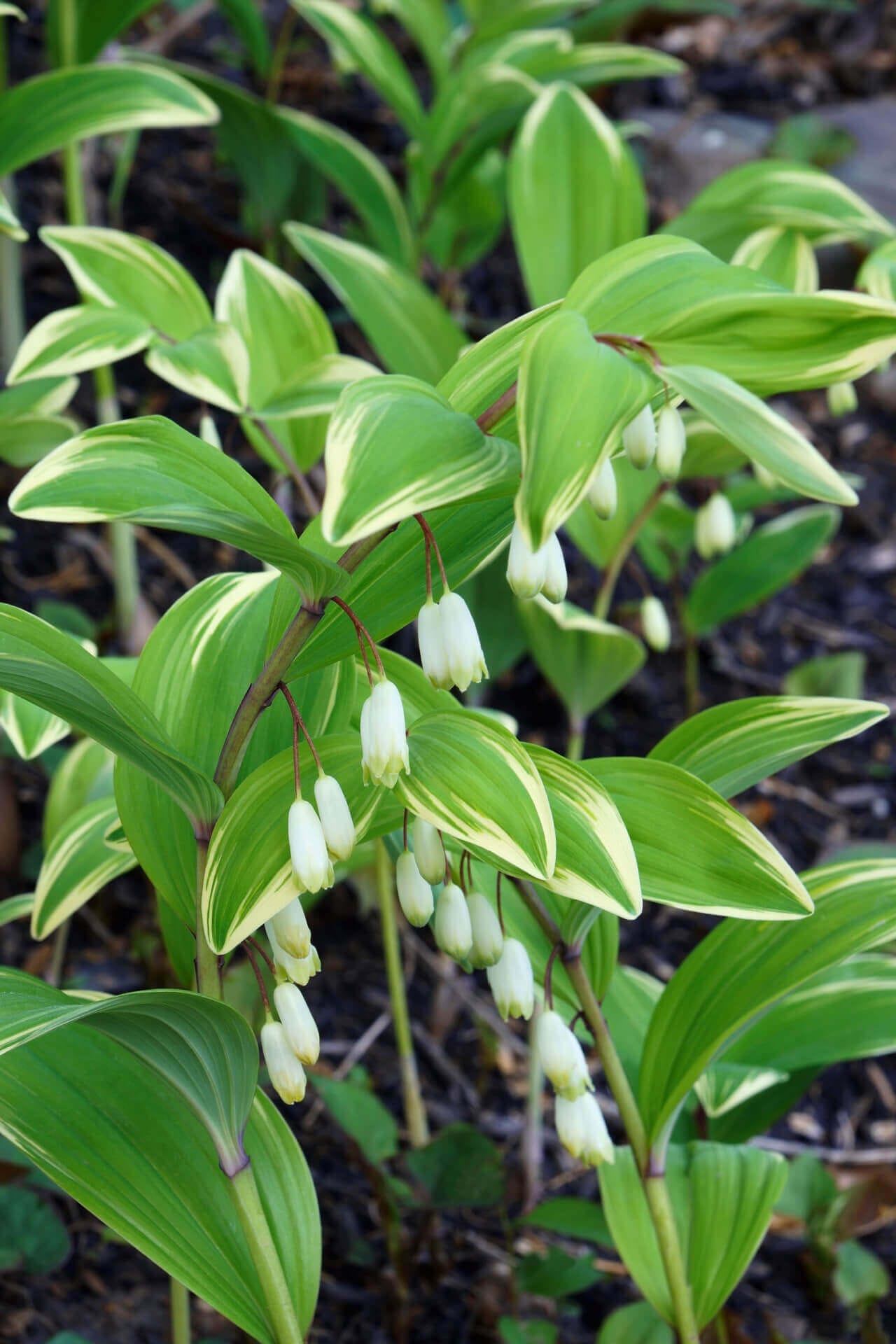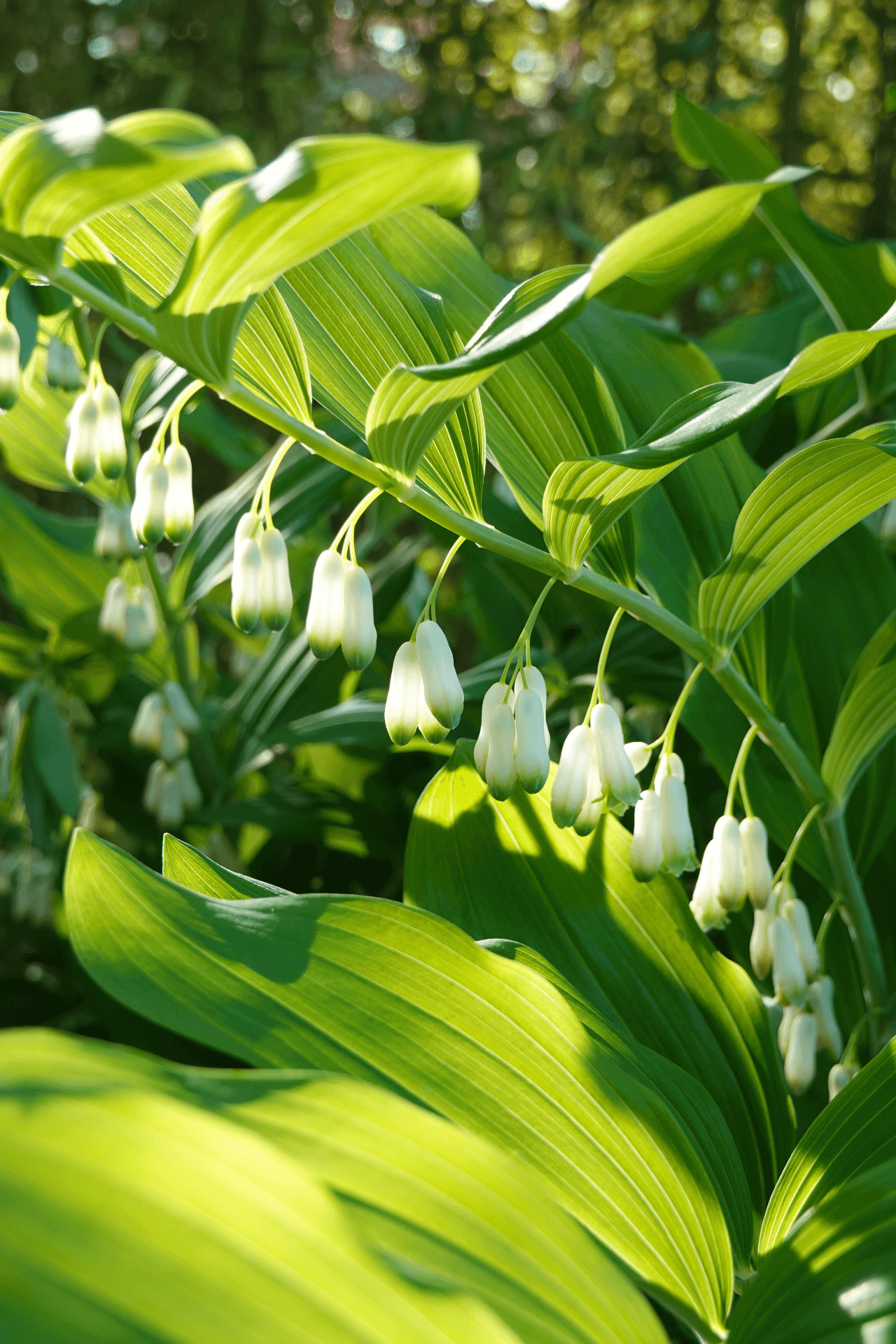Solomon's Seal Plant
Couldn't load pickup availability
Ships 10-12 Days
Over 12"
Full Shade
4-9
Flowering
Bare-root
Polygonatum - Solomon's Seal Plant
Solomon's Seal Plant is a beautiful plant with a unique appearance. It grows up to 36 inches and has arching stems adorned with shiny, oval-shaped leaves that alternate along the stem. In the late spring to early summer, the plant produces delicate, bell-shaped flowers hanging from the stem's underside. The flowers are typically white or greenish-white and have a sweet fragrance.
The Plant, known by its scientific name Polygonatum biflorum, is a perennial plant belonging to the Asparagaceae family. This plant is from North America and can grow in the wild in woodlands, meadows, and streams. It is a fascinating plant with various exciting features and benefits.
Solomon's Seal Plant In Your Garden
It is a popular plant for gardens and landscaping. It is a low-maintenance plant that grows well in partial to full shade. The plant is often used in woodland, shade, and naturalized areas. It is also an excellent plant for erosion. Solomon's Seal is a fascinating perennial that offers a variety of benefits.
It is a beautiful plant with unique medicinal, culinary, and garden landscaping features. It is a plant worth considering. Whether you are looking for a low-maintenance plant for your garden, this is a great choice.
It is a small, herbaceous perennial that does best in hardiness zones 3 to 9. It grows from two to three feet high with a spread of 3/4 of a foot to one foot. The plant is sought after for its broad, paired leaves along the burgundy-colored stems.
The leaves can be four to six inches long, and some varieties have green leaves attractively edged with white. The flowers are unusual because they are small, white, and dangle from arching stems.
Their Fragrance Resembles the Sweet Smell of Lilies
It grows moderately, making it perfect for a wet spot in the garden that doesn't get a lot of sun. It's also an excellent plant for a rain garden.
Despite this, it tolerates drought, dry or eroded soil, and deep shade. The plant is an excellent choice to grow with spring-flowering bulbs such as daffodils or other shrubs that do well in shade. It's also suitable for rock gardens and naturalized areas of the property.
Hardy and Disease Resistant
It can be a little care. It's primarily disease and pest-resistant, though the gardener should watch for slugs. Our plants come bare-root and in top condition. The plant is a perennial, edible, flowering plant often grown in heavy shade of rocky gardens and woodland areas.
When Solomon's Seal Plant blossoms in the Springtime, they will bloom white flowers, which produce red or black berries.
This Is How Your Plants Will Look upon Delivery
Bloom/Foliage Color
White
Shipping date depends on the date displayed and chosen when you order from the product's page.
We do not offer warranties on products after 5 days past receiving your plants.





